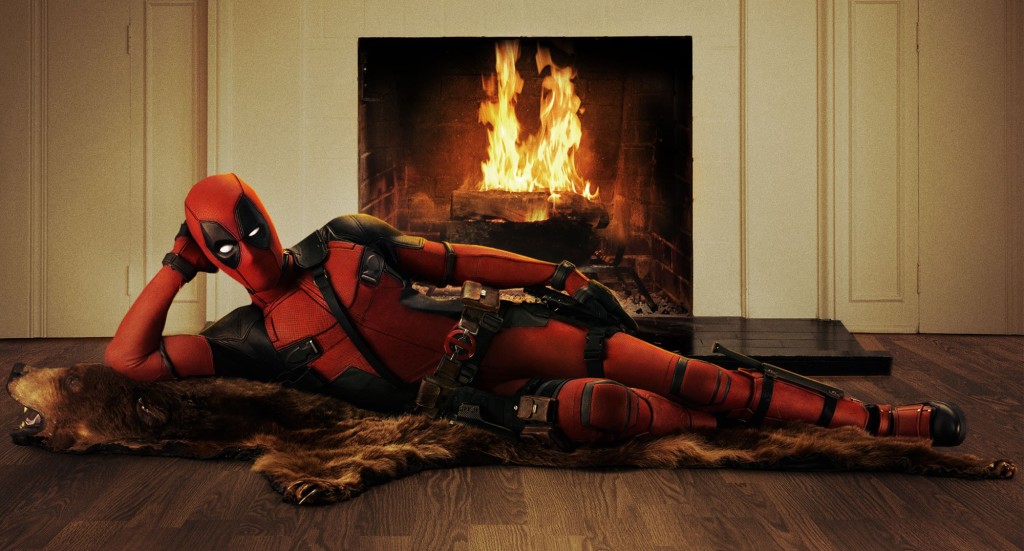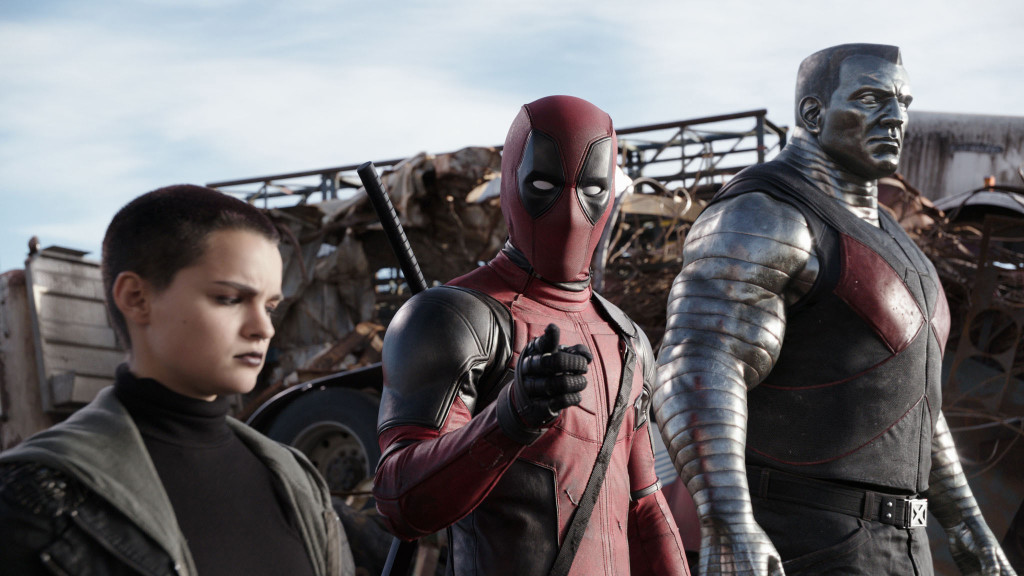
As I walked out of the theater, dazed and wide-eyed, I massaged my cheeks, nursing the stretch-marks that became semi-permanent due to my never breaking out of a grin.
I laughed throughout that whole movie.
There was not a second where Deadpool, a superhero film directed by Tim Miller and starring Ryan Reynolds, failed to have me in stitches. Every plot point, scene change, and moment of tension were always undercut with a timely punchline. Clever, witty, and never forsaking itself to pandering, the humor in Deadpool never stopped rolling; and honestly, we never wanted it to.
For the most part, movie humor falls into three categories: the kind that is created for a wide audience, the kind that is created for a specific demographic, and the low-brow kind that is supposed to appeal to anyone willing to indulge themselves in comedy of that sort. It seems that movies able to employ humor that effectively reach a wide audience demographic ultimately succeed in the long run, whereas movies that forcefully develop humor to pander to trends or the popular audience demographic are left to wonder where their staying power went.
Deadpool is an example of a movie that gets all of its humor right, managing to fall into all three categories in one fell swoop. The movie appeals to die-hard Deadpool fans, while at the same time entertaining an adult crowd looking for witty humor that manages to be dirty, yet intelligent at the same time–a vein reminiscent of 21 Jump Street’s irreverent but relatable comedy.
It’s very difficult to nail the sweet spot Deadpool perfects. To compare, take a movie like 2007’s Epic Movie, an unbearable entry in Jason Friedberg and Aaron Seltzer’s parody movie franchise. Epic Movie focuses on poking uninspired and crude jokes at the films that it parodies, such as The Chronicles of Narnia, Harry Potter, X-Men, and Tim Burton’s Charlie and the Chocolate Factory. Resorting to low-brow humor, fart jokes, and the like to get as many measely chuckles and laughs as possible, Epic Movie turned into one of the most critically panned movies of the year, not atypical of Friedberg and Seltzer’s other parody movies.
On the complete opposite end of the spectrum, take a look at 2015’s Inside Out, a movie about the emotions living inside a young girl, and how they have to overcome an abrupt change in environment in order to keep said girl emotionally stable. Although marketed towards young children, the humor in the movie proved to be apt for both adults as well. While kids may cheer at the antics of the emotions, or at the young girl’s imaginary friend Bing Bong, adults are able to crack a smile at the film’s creative take on emotional psychology (e.g. the main characters personifying joy, sadness, anger, disgust, and fear), and how functions of the mind are realized into easy to understand, kid-friendly apparatuses (e.g. the “islands of personality” representing core values that form the main character’s personality).
Inside Out ultimately is more successful in its humor that Epic Movie due to the amount of effort the movie puts into each joke, instead of trying to pump out as many jokes as possible. Inside Out also identified its target demographic and was able to create humor that suited it.

Deadpool is an interesting comparison with the above two films because it manages to do both: it pumps out an insane quantity of punchlines and jokes, and also effectively relates its humor to its intended demographic. Before opening night, Deadpool had one of the greatest marketing runs in film history, with images flying around the internet of hysterical posters and billboards like this and this. (For the record, neither of these images were photoshopped.) Deadpool is intimately aware of its audience, understanding that the people who will go out and see it want meta, knee slapping, in-your-face jokes with a tinge of sarcasm, undercut with as many cutaways and references as a typical Family Guy episode can manage.
And man does it deliver.
If it’s not Wade Wilson (played by Reynolds) cracking a much-needed shake weight joke, it’s Deadpool lying “paint-me-like-one-of-your-French-girls”-style while taking out a baddie. If it’s not Deadpool commenting on how it seems the studio could only afford two X-Men, it’s a wisecrack about Ryan Reynolds’ stint in the critically panned Green Lantern. In tense moments throughout the movie, scenes of emotion may be undercut with a sarcastic remark, Wham! the band, or a quip about how Christian Bale managed to speak in such a gargly voice during his run playing Batman.
Not to mention that there are, as Reynolds was quoted saying, “over a hundred easter eggs” in Deadpool. While the typical moviegoer will watch Deadpool and enjoy a snarky anti-hero dropping one-liners and kicking ass for an hour and forty-eight minutes, long-time fans of Marvel comics and the Deadpool character can indulge paying close attention to dialogue and visuals to see how many references they can spot. The director and producers understood their target demographics–comic book fans and general teens-adults interested in seeing the movie after getting hooked on the brilliant marketing campaign that tells them exactly what to expect–and ultimately capitalized on that.
As an overall movie, Deadpool is simplistic in plot and character development, no questions there. The fact that it ends up being so successful can be attributed to many things: Ryan Reynold’s amazing delivery, the aforementioned marketing campaign, it being a venture eleven years in the making. But despite everything that the film had going for it up until release day, what actually makes Deadpool work as a movie is how precisely every crack, jab, piece of satire, pun, whatever you may call it, falls into place. From the opening credits up until the very conclusion and a Ferris Bueller homage after-credits scene, no one in my audience could keep themselves from cheering and screaming in pure joy at each awful, poignant moment.
Amongst the flurry of blockbuster superhero flicks slated to be released this year, like X-Men: Age of Apocalypse and Batman v. Superman: Dawn of Justice, Deadpool definitely sets itself apart from the competition with its unique utilization of comedy, that understands its audience, the humor that they’ve signed up for by buying a ticket, and the ways to deliver that humor non-stop.
Photos courtesy of here and here
